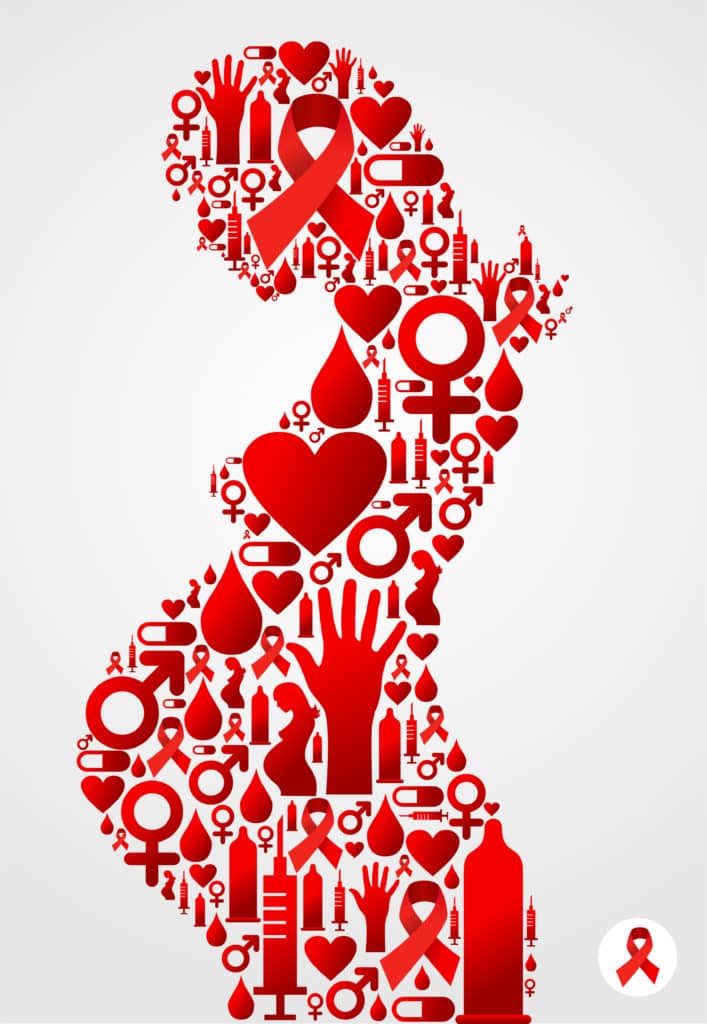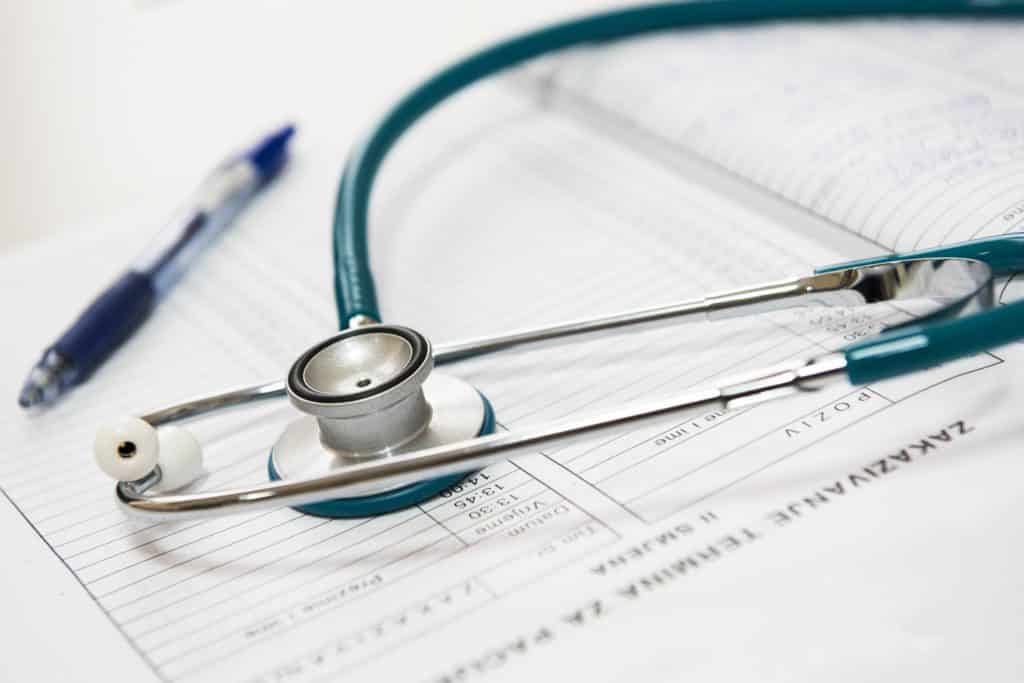HIV…the feared Human Immunodeficiency Virus. In Nigeria, it is associated with so much stigma and fear because most people consider a positive diagnosis to be a death sentence. For women living with HIV in pregnancy, the stakes are even higher due to their relationship with their unborn child.

However, contrary to popular opinion, a diagnosis of HIV does not automatically mean a woman cannot get pregnant. If you are HIV positive and you plan on having children, here are a few things you need to know about HIV and pregnancy.
What Should I Do Before Getting Pregnant?
Discuss with your doctor early on if you plan to get pregnant. He/she would inform you about the effects of HIV on pregnancy. Your doctor will also guide you on how to best prepare for a healthy pregnancy.

Everyone diagnosed with HIV needs to take their medicines and keep up with their check-ups to remain healthy. This is especially important if you plan to get pregnant. Doing this way before your pregnancy will lower the risk of passing the virus to your baby.
Worried about infecting your partner? There is no need to be!
If your partner is HIV negative, there are still ways you can get pregnant that will greatly reduce the risk of your partner getting infected. These are part of the things you need to discuss with your doctor.
I Am HIV Positive , Can I Transmit It To My Baby?
Yes, it is very possible to transmit HIV to your baby. This can happen during pregnancy, childbirth or breastfeeding. Therefore, necessary precautions need to be taken throughout your pregnancy and birth to prevent this from occurring.

The single most important factor in spreading the virus to your baby is your viral load. This is more or less the volume of the HIV detectable in your bloodstream.
I Don’t Have HIV. Why Should I Get Tested During Pregnancy?
Pregnant or not, everybody needs to know their HIV status at regular intervals.

Even if you have never been confirmed positive for the HIV virus, you still need to get tested for HIV if you are pregnant. This is because it is possible to have the virus and not know.
In such a case, early detection will not only protect your baby from also getting an infection, but will also improve your overall health.
What Should I Do If My Partner Is The One With HIV?
Women are more likely to get an HIV infection through vaginal sex than men.

This means that if your male partner is the one with the infection, you have a higher risk of getting HIV while trying to get pregnant. However, it is still possible to get pregnant without getting infected as long as the necessary precautions are taken.
The first thing to do is to talk to your doctor about your options. You may be recommended to be on HIV medicine that would help protect you and your baby from HIV. Your doctor may also suggest you use donor sperm or assisted reproductive technology to get pregnant. However, keep in mind that these options are more expensive.
I Am Already Pregnant. Will My Baby Have HIV?
As a person living with HIV, contact your doctor immediately you get miss a period and have a positive pregnancy test. This would help him/her direct you on the right path to a safe and healthy pregnancy.

We want you to know that you having HIV does not automatically mean your child would have HIV. With recent advances in medicine, it is now possible to lower the risk of mother-child transmission to almost zero!
How Can I Protect My Baby From Getting Infected?
If you have HIV, you can take these steps to reduce the risk of passing it to your baby:
- Inform your doctor you want to get pregnant. This is the only way to get professional guidance on how to have a healthy pregnancy and baby.
- Get prenatal/antenatal care, and take it seriously. This is the only way your doctor can closely monitor you to ensure you and your baby are fine. It is advisable to choose a hospital or doctor that is specialized or experienced in caring for babies exposed to HIV.
- Start HIV treatment. Your doctor would most likely put you on antiretroviral drugs to reduce the risk of you infecting your baby. If you were on medication before pregnancy your meds may be modified slightly to ones that are safe for pregnancy. With HIV treatments, come some side effects that may be especially challenging during pregnancy. Still, you have to take your drugs. Discuss with your doctor about whatever side effects you may experience and how to best manage them.
- Stay the course: You will have tests done at regular intervals to monitor your viral load and make sure you and your baby are healthy. Please don’t skip them and if you do try and make arrangements to make up.
- Breastfeeding: Breastmilk has so many benefits for your baby. It provides immunity and more. However, a few precautions need to be taken. The virus can be transferred to your baby through breast milk; even if you are on medication. Recommendations vary based on where you live, your financial situation etc. In some countries, formula feeding is recommended. While in others where the risk of not breastfeeding (eg. diarrhoeal diseases, malnutrition) outweigh the benefits, it is recommended that you give your child breastmilk. Please speak to your doctor about your options.
- Do not mix feeds: If you are planning on formula feeding, stick to that. Please do not mix breastmilk and formula. Irritations from formula feeding can compromise your baby’s gut and leave them vulnerable to any virus in your milk.

How Will My Care During Pregnancy And Delivery Be Different?
During pregnancy, your doctor would most likely put you on HIV medication. This would reduce the risk of you transferring HIV to your child. You may also need to visit the hospitals more often as your doctor will need to monitor you closely.
It is important to discuss your delivery options with your doctor as soon as possible. Your doctor may recommend either a C-section or a vaginal delivery. A C-section is usually recommended for an HIV positive mother that has had no prenatal care nor been on any anti-HIV medication.
What Happens To My Baby After Birth?
Your baby should be given some anti- HIV medication immediately they are born or within 12 hours of birth. This which will be continued. They will then be tested at birth, 2 weeks old, 4 weeks, 6 weeks and so onto monitor their status when the antibodies to HIV would have cleared from their system.
Your doctor will inform you on whatever follow-up tests your baby would need and when they need to be carried out. Discuss with your doctor about whether your baby would need to start HIV treatment immediately. Most doctors will prescribe antiretroviral drugs for your baby for the first 4 weeks after birth to prevent your baby from getting HIV.
What Happens To Me After Birth?
Your doctor may decide to stop or change your anti-HIV drugs after birth. However, do not alter your regimen without approval from your doctor as this could lead to problems.
You would also need to continue with your medical care through routine medical checkups, family planning services, mental health services and HIV specialty care.
Consult with your doctor about which of these services you may need and how to access them.
If you choose not to breastfeed, please inform your doctor so they can prescribe medication to help stop your breastmilk flow and prevent complications such as mastitis, abscesses or discomfort from breast engorgement.
Should I Be Worried?
In today’s world, living with HIV is no longer a death sentence.

People who are diagnosed with an infection do go on to live healthy, normal lives with the option of giving birth to healthy HIV-free babies! So even if you or your partner is HIV positive, there is absolutely no need to worry. Given the current COVID- 19 pandemic please read through the current guidance for pregnant women.
Speak to your doctor, follow all advice given and take your medications and keep up with your screening tests. We assure you that you and your baby would be fine.
REFERENCES
- Minkoff H (April 2003). “Human immunodeficiency virus infection in pregnancy”. Obstetrics and Gynecology. 101 (4): 797–810. doi:10.1097/00006250-200304000-00038. PMID 12681888.
- “WHO/UNAIDS/UNICEF infant feeding guidelines”. www.unicef.org. Retrieved 2018-09-06.
- Shutterstock
- Pexels.com

